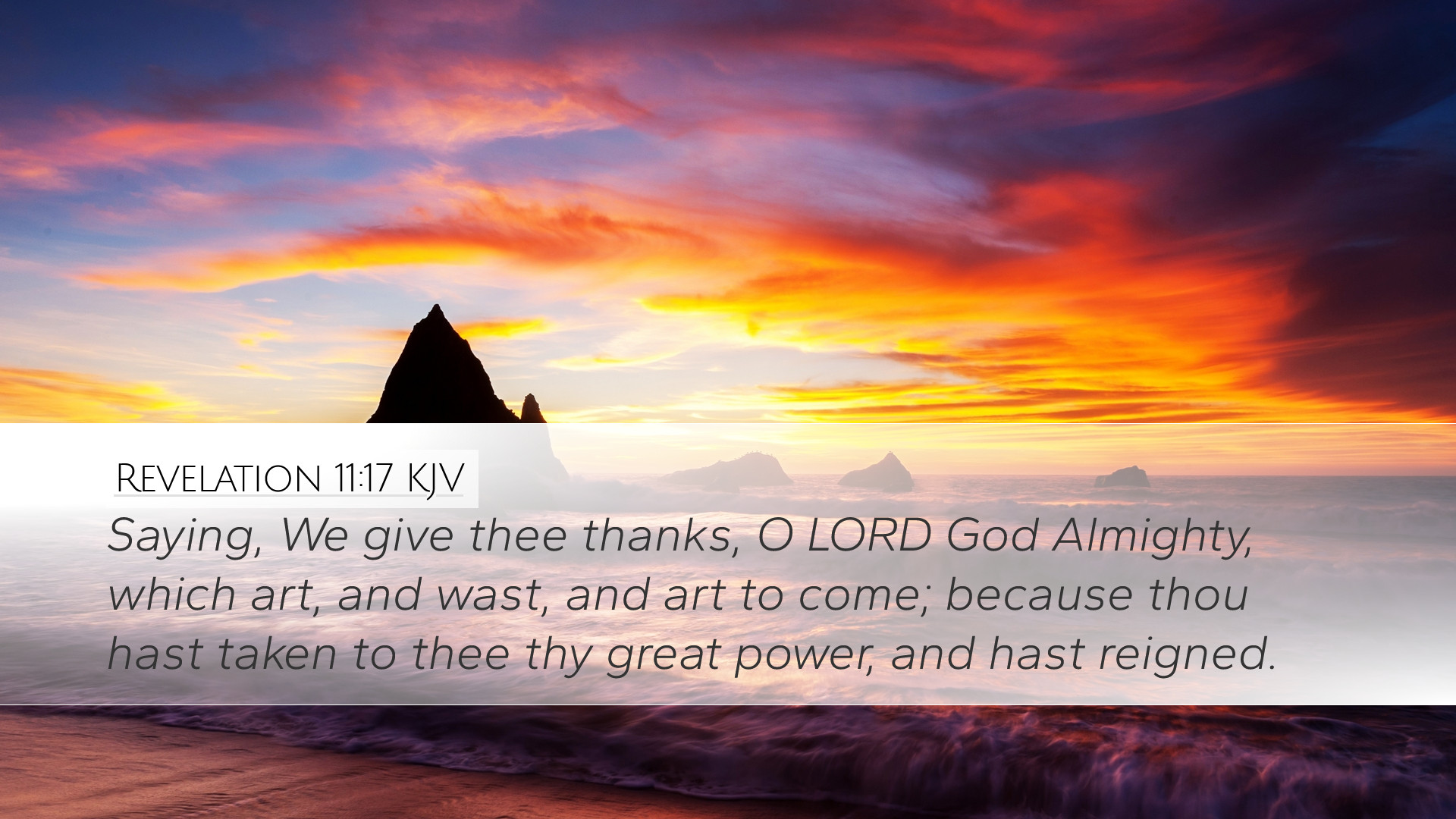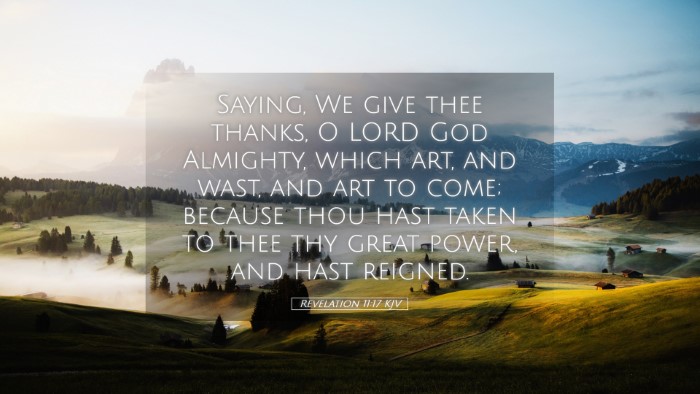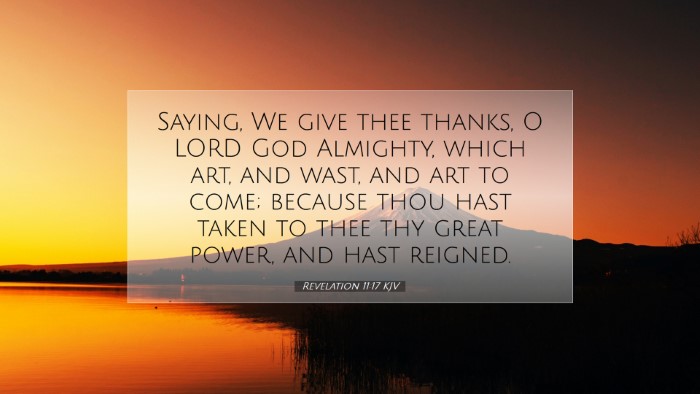Commentary on Revelation 11:17
Verse: "We give you thanks, O Lord God Almighty, who is and who was, because you have taken your great power and begun to reign."
Introduction
This verse is a profound statement of praise and acknowledgment of God's sovereignty. It captures a moment of divine anticipation during the apocalyptic events described in the Book of Revelation. The sentiments expressed here echo throughout Scripture and serve as a call to worship that resonates with both historical and eschatological significance.
Historical Context
The Book of Revelation, attributed to John, presents a vivid revelation of Jesus Christ meant to encourage and admonish the early church in the face of persecution. The reference to God as "Almighty" underscores His omnipotence over all creation and history. This verse arises during a climatic point that speaks to the ultimate dominion God exercises and serves as a precursor to the final establishment of His kingdom. It speaks to those who might be weary and feeling the weight of suffering during tribulation.
Thematic Analysis
Revelation 11:17 encapsulates several key themes:
- Divine Sovereignty: The acknowledgment of God's reign signifies that He is in control of all events, affirming the faithful belief that God's agenda will unfold according to His perfect will.
- Gratitude and Worship: The giving of thanks reflects the necessary response of the faithful to God's actions — a reminder that gratitude must accompany our understanding of God's work in the world.
- Eschatological Hope: This verse serves as an assurance of God's final triumph over evil, empowering believers with hope in the face of trials, knowing that God's kingdom will be established fully.
Insights from Commentaries
Matthew Henry's Commentary
Matthew Henry emphasizes the importance of recognizing God's sovereignty throughout the ages—"who is and who was"—which affirms His eternal existence and rule. He notes that this acknowledgment should inspire a response of gratitude and reverence among believers, encouraging a heart within the church that is always grateful for God's persistent involvement in history. Furthermore, Henry stresses that the declaration of God's "great power" showcases His relationship with His creation, a power that is instrumental in delivering His people and bringing about justice.
Albert Barnes' Commentary
Albert Barnes provides a detailed exploration of the phrase “O Lord God Almighty,” pointing to its recognition of God’s infinite power over all creation. He highlights the phrase as indicative of God’s ultimate control—not just over spiritual affairs but also over earthly domains. This passage serves to remind believers that even in chaos, God's reign is assured and will manifest visibly for all to see. He also notes that the phrase “begun to reign” can signify the commencement of a new era for God's people, initiating the advent of a reign characterized by righteousness and peace, where God's authority is in view for all nations.
Adam Clarke's Commentary
Adam Clarke elaborates on the implications of worship arising in the context of God’s reign. He draws parallels to Old Testament themes, particularly the doxological expressions found in Psalms, suggesting that the thankfulness expressed by the heavenly hosts is both a recognition of God’s actions and a call to all creation to align themselves under His lordship. Clarke also brings forth an important aspect of eschatological fulfillment, implying that the reign referred to in this verse presages the ultimate establishment of God’s kingdom, a hope that should resonate strongly with followers of Christ amid trials and tribulations.
The Role of Worship
The act of giving thanks as depicted in this verse is crucial for understanding the nature of worship in a biblical context. It encapsulates both adoration and acknowledgment of God's majesty. The worship expressed in this passage serves as an anchor for believers, reminding them of the importance of recognizing God's action in their lives and history.
Pastoral Applications
For pastors, Revelation 11:17 offers a rich opportunity to encourage congregations to develop a deeper understanding of worship as both response and recognition. It invites reflection on the nature of God's sovereignty and how trust in His reign can transform personal and communal worship experiences.
Theologians' Reflections
Theological discussions can draw from this verse richly in areas such as Christology, eschatology, and soteriology. Understanding God's reign through Jesus Christ offers believers assurance of salvation and hope for eternal life, allowing theologians to build a comprehensive framework that resides in the nature of divine revelation.
Conclusion
Revelation 11:17 serves not only as a moment of thanks but as a profound testimony to the character of God. In the midst of tribulation, believers are reminded of the sovereign power of God who reigns eternally. The continuous theme of gratitude encourages faithful perseverance and reorients the heart of the believer towards worship, uplifting spirits and nurturing faith in the God who is ever-present in our lives.


